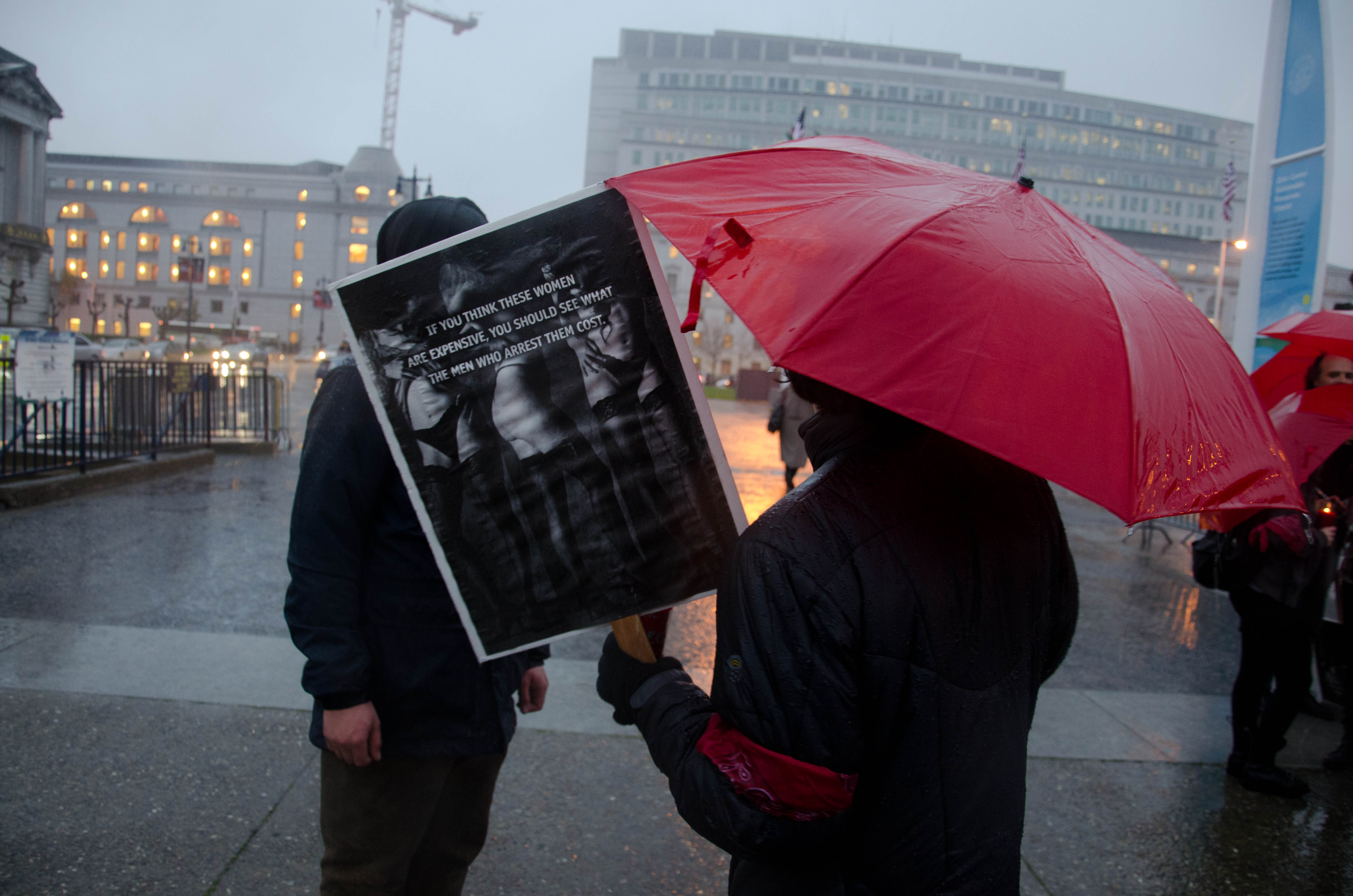Like this article? rabble is reader-supported journalism. Chip in to keep stories like these coming.
On May 26, Amnesty International released its policy on protecting the human rights of sex workers in a policy report and four separate country reports on Argentina, Norway, Hong Kong, and Papua New Guinea.
Jackie Hansen, Women’s Rights Campaigner with Amnesty International Canada told rabble in a telephone interview that the policy was “developed from the ground up” and that research was “guided by [the] voices” and lived experiences of current and former sex workers across the globe.
Report rejects Nordic model
Amnesty International’s policy rejects the criminalization of sex work, and calls on states to “repeal existing laws that criminalize or penalize directly or in practice the consensual exchange of sexual services between adults for remuneration.”
Evidence shows that criminalization of sex work and sex workers results in human rights abuses, creates barriers to accessing health care and other social services, and undermines sex workers’ access to legal justice.
The policy notably rejects the Nordic model, which refers to legislation that decriminalizes the selling of sexual services and criminalizes the buying sexual services and organizing sex work.
Amnesty International’s research found that the Nordic model forced sex workers to “operate covertly” and prohibited actions that sex workers take to manage their safety.
Amnesty International’s research found that the Nordic model, while it does not criminalize sex workers directly, undermines sex workers’ human rights by criminalizing safe sex practices.
Hansen described how in Norway, one of a growing number of countries that use the Nordic model, condoms can be used as evidence of sex work.
The Norway country report quotes the Nadheim Church City Mission’s 2013 Annual Report on the issue: “Street prostitutes have told us about how the police have aggressively searched them and confronted them about having a large number of condoms on them which, they allege, proves that they are prostitutes.”
The Norwegian police and justice system’s practice of using condoms as evidence is “interfering in the provision of HIV and STI prevention programs with sex workers,” the report concludes.
Beyond decriminalization
Hansen clarified that the policy goes beyond criminal law and looks at how human rights violations are the result of stigmatization, gender-based violence, and intersecting forms of discrimination and oppression.
Amnesty International “recognizes that criminal law alone won’t prevent human rights abuses of sex workers.” Instead, governments ought to think of decriminalization as “part of a toolkit,” Hansen told rabble.
The policy details how sex workers face discrimination and endure human rights abuses based on gender, sexual orientation, race, ethnicity, caste, Indigenous identity, and migrant status. These forms of discrimination are intersectional.
Governments should consider the intersecting economic, social, and cultural rights violations that contribute to the marginalization of sex workers, Hansen argued.
Amnesty International urges states to develop laws and measures that reduce stigmatization, discrimination, and marginalization, and ensure the protection of sex workers’ rights.
The policy urges the “meaningful participation of sex workers” in the development of these policies because, as Hansen told rabble, “all sex workers have a different story, and live in a different context.”
Canadian context and Bill C-36
Amnesty International’s rejection of the Nordic model implicates Canadian law Bill C-36.
Bill C-36 was adopted on November 6, 2014 and criminalizes the buying of sex and communicating for the purpose of buying sex.
The bill was tabled in response to the Supreme Court’s 2013 decision to strike down three of Canada’s criminal laws on sex workers in Canada v. Bedford.
In Canada v. Bedford, the Supreme Court found Canada’s criminal laws pertaining to sex work to violate the right to the security of a person.
The Conservatives brought Bill C-36 to the table just under a year later. The laws introduced by C-36 are a form of the Nordic model, which then Justice Minister Peter MacKay dubbed the “Canadian model.”
Some Canadian groups, like the Asian Women Coalition Ending Prostitution (AWCEP), see the Amnesty International policy as undermining their advocacy for exploited girls and women in sex work.
AWCEP’s Suzanne Jay told rabble in an email that “AWCEP and other feminist groups fought for and won the decriminalization of prostituted women in Canada.” Jay believes that the Amnesty International policy will undermine AWCEP’s work.
While the Amnesty International policy is clear in its condemnation of human and sex trafficking, Jay says that AWCEP is concerned that policies decriminalizing the buying of sex will sanction these exploitative practices.
However, other Canadian groups, like Pivot Legal Society, a Vancouver legal organization that runs a campaign to support sex workers’ rights, fully support the decision, which they note is “based in evidence and human rights principles.”
“We urge our government to listen to people doing sex work here in Canada and ensure that our own laws prioritize the health and safety and human rights of sex workers. Currently, our laws do none of those things,” said Brenda Belak, lawyer and campaigner with Pivot in the release.
N.B. Amnesty International’s use of the term “sex work” refers only to the consensual exchange between adults.
Correction: A previous version of this article incorrectly cited media officer Elizabeth Berton-Hunter instead of Jackie Hansen, Women’s Rights Campaigner with Amnesty International Canada. This has been revised. rabble regrets the error.
Sophia Reuss is a Montreal-based writer, editor, and is a recent graduate of McGill University. She’s interested in how online media and journalism facilitate public accessibility and conversation. Sophia also writes and edits for the Alternatives International Journal. She is rabble’s news intern.
Photo: flickr/Steve Rhodes




